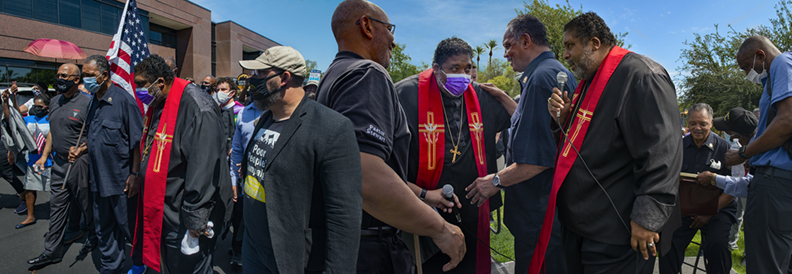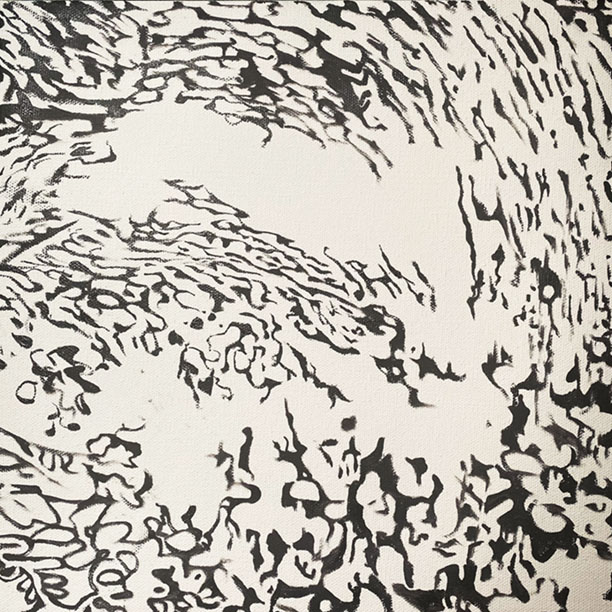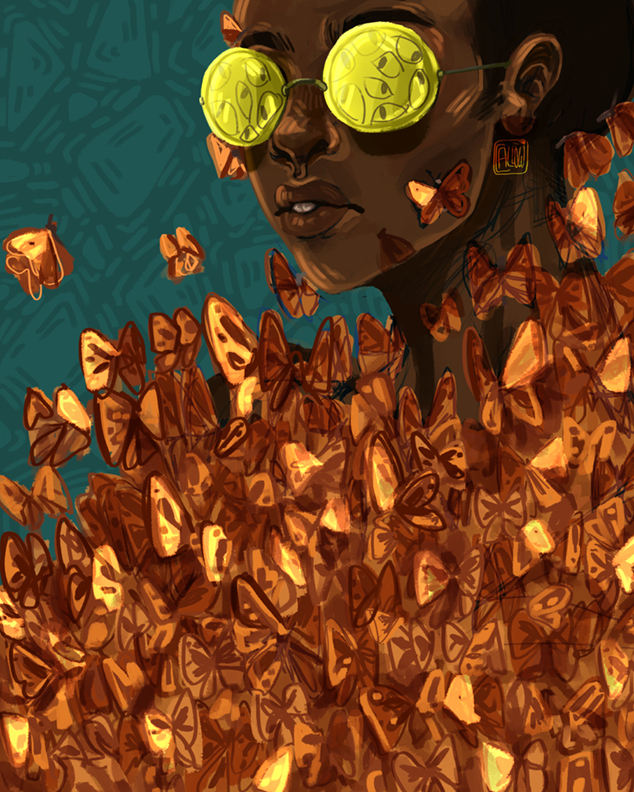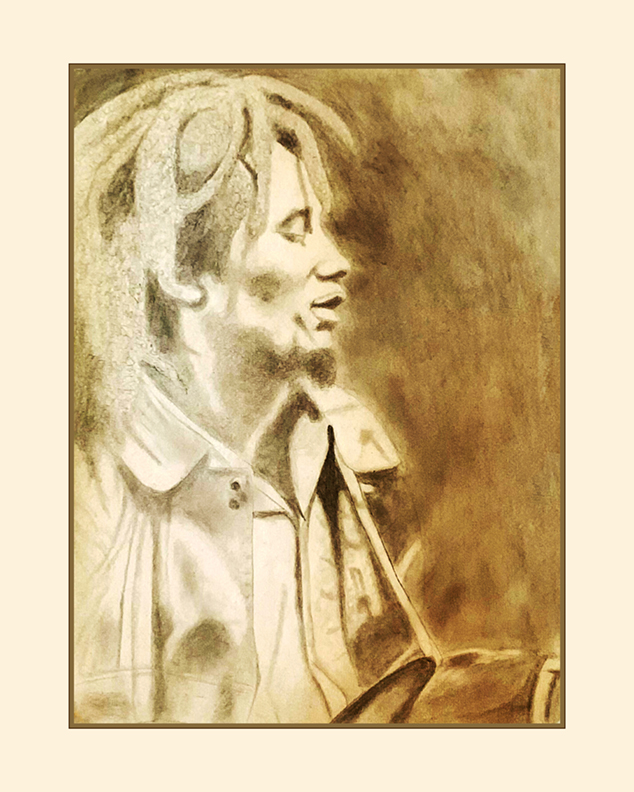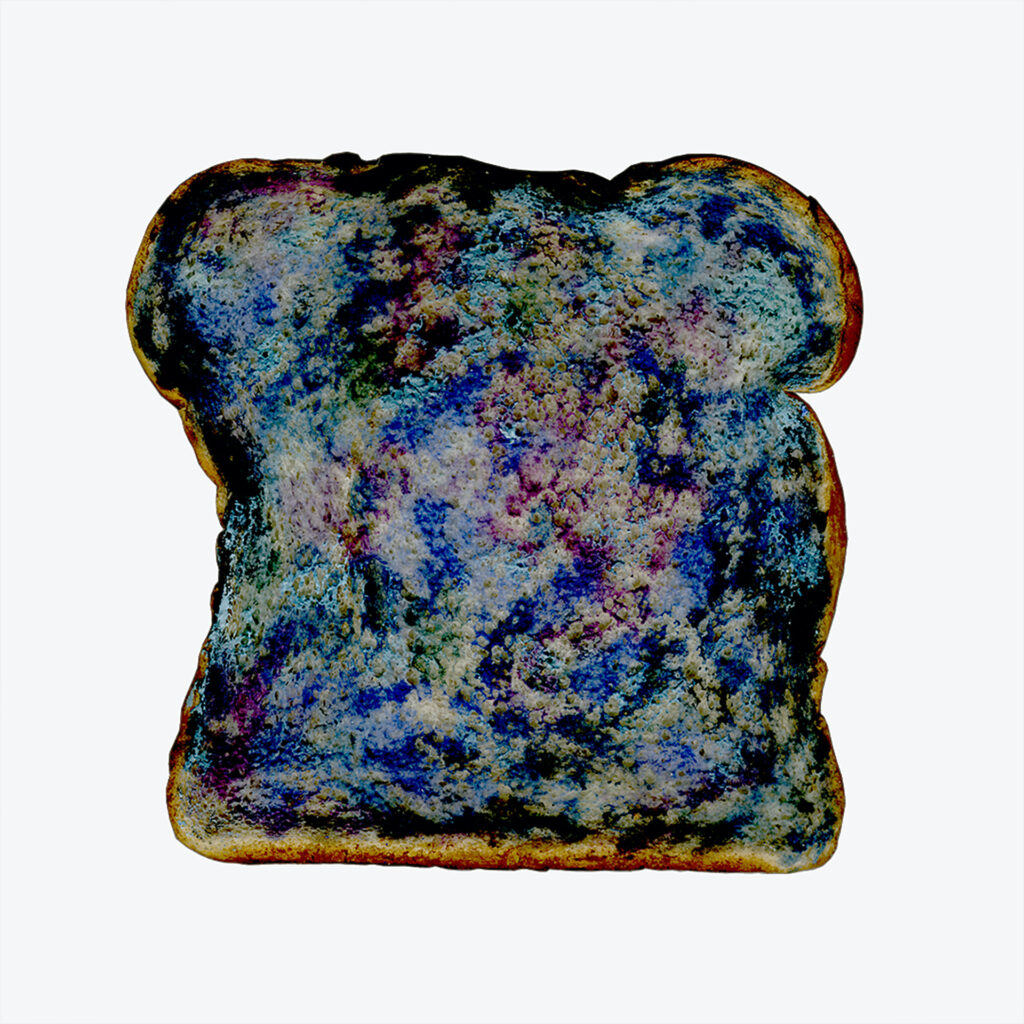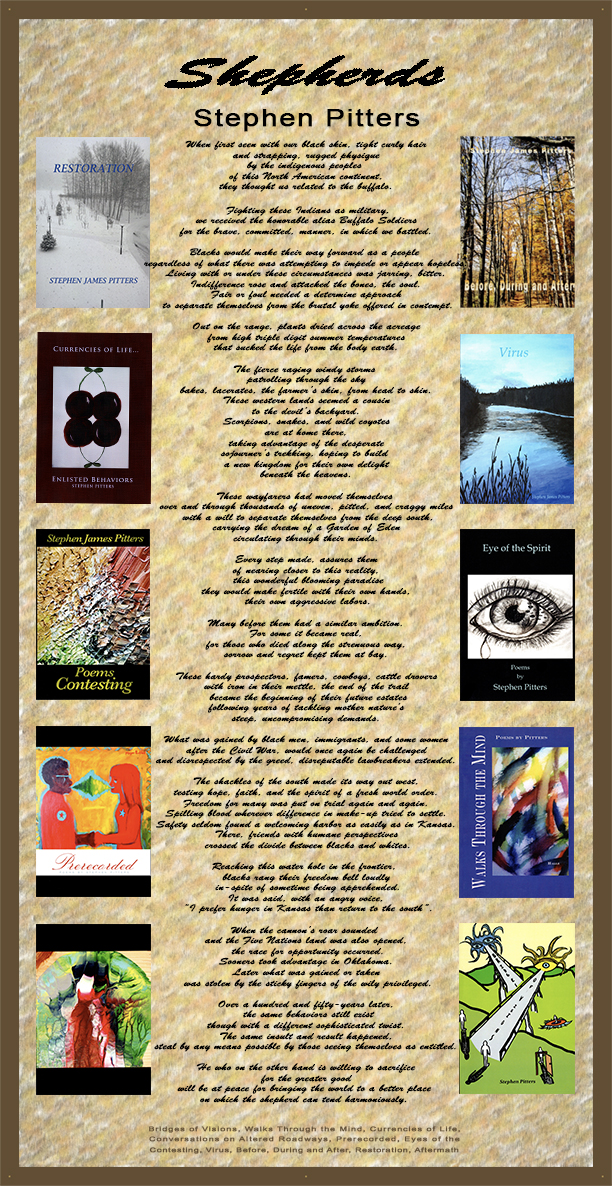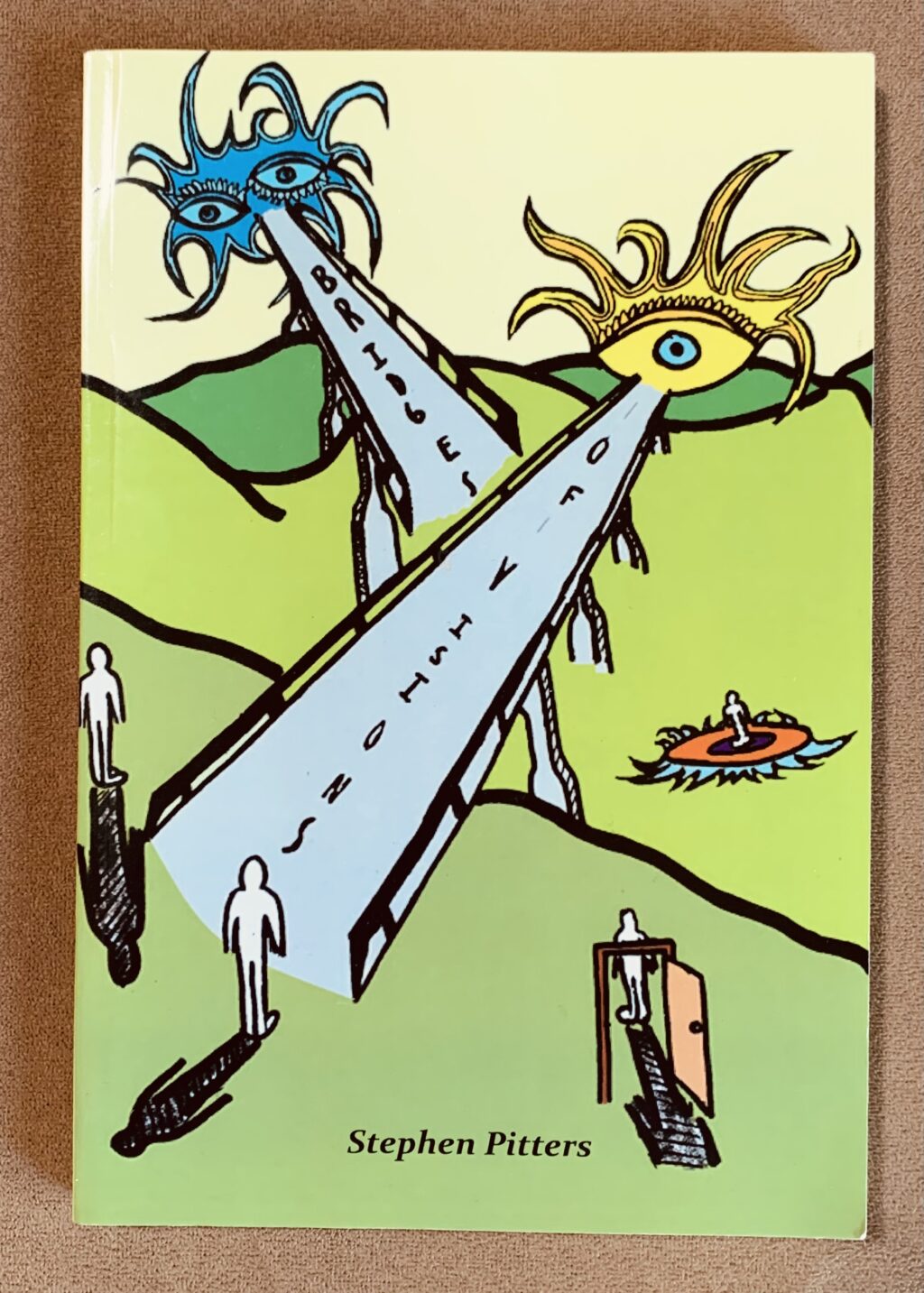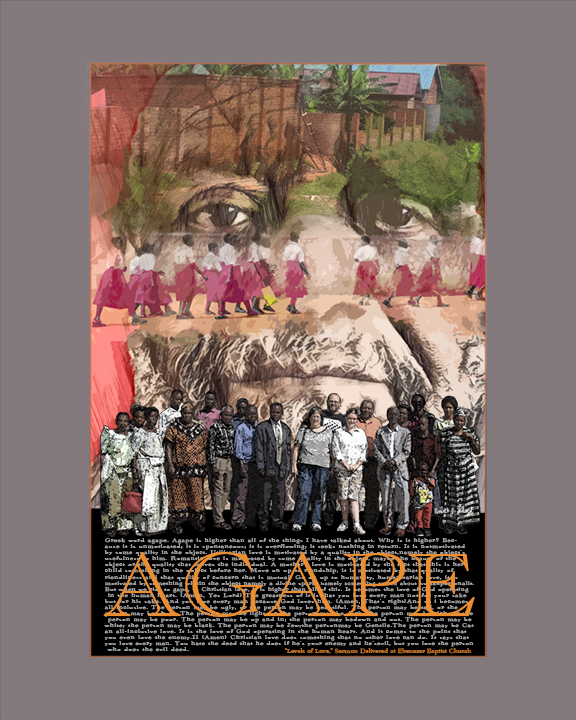Consuelo Soto Murphy and 20 plus artists sharing their stories and visions through their art – pictorial, documentary and abstract. Come to the Carl Maxey Center at 3114 E. 5th Ave on Saturday April 9th. Youth can meet with the artists in the exhibition from 12 – 3 pm. Have wine and Lébakes cheesecake with the artists from 5 – 7 pm.
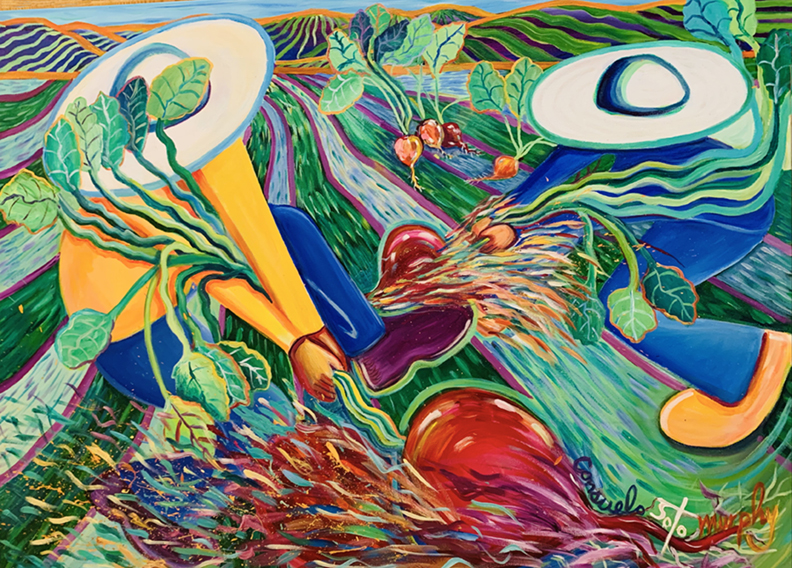
Consuelo Soto Murphy
Consuelo Soto Murphy studied Art and Art Education at Eastern Washington University and Spokane Falls in Spokane Wa.
In second grade, her teacher declared her an artist when she brought Consuelo up to the front of the class and she held up a drawing of a twisted and very large and brightly colored octopus. Consuelo believed her and from then on she was an artist.
Consuelo graduated from Sunnyside High School in 1979 and Graduated from Eastern with degrees in Art Education, Studio Art and K-12 Education. In 1989 Consuelo began teaching Art at Richland High School in Richland, Washington where she taught Art for 32 years while continuously pursuing her painting career.
Consuelo Soto grew up as a child migrant worker along with her family, doing field work across the United States, season to season, before eventually settling in the Yakima Valley of the Pacific Northwest.
Despite the grueling, backbreaking work, Consuelo’s art pieces are inspired by the positive memories of the beautiful landscapes, the flourishing crops, and the love and relationships forged with her family and friends. Consuelo was the seventh child of nine children. While the older ones worked all day in the fields, Consuelo was able to go to school during the day, working before and after school and during the summers.
While Consuelo works primarily in acrylics on canvas, she is far from limited to this medium. The magnificent pieces produced by Consuelo Soto Murphy have gone to homes all over the world. Her work has been featured in publications and galleries as well as featured on television productions.

